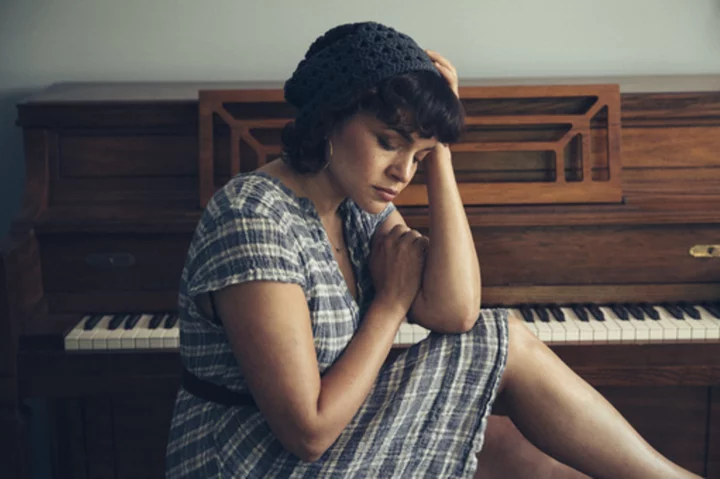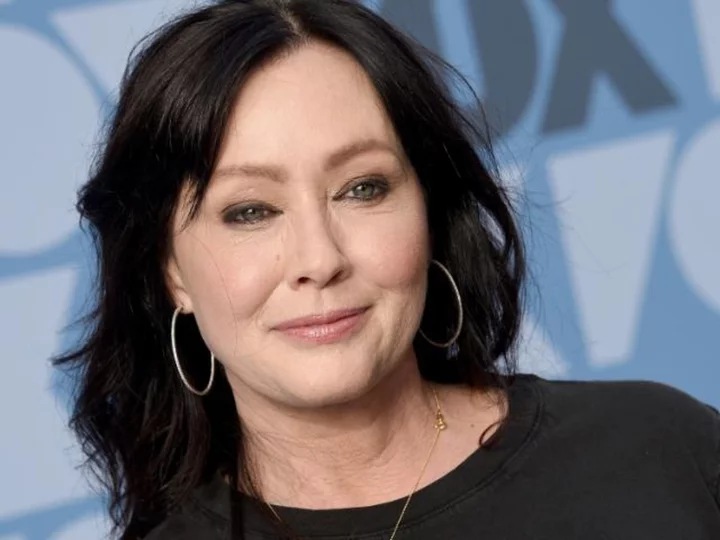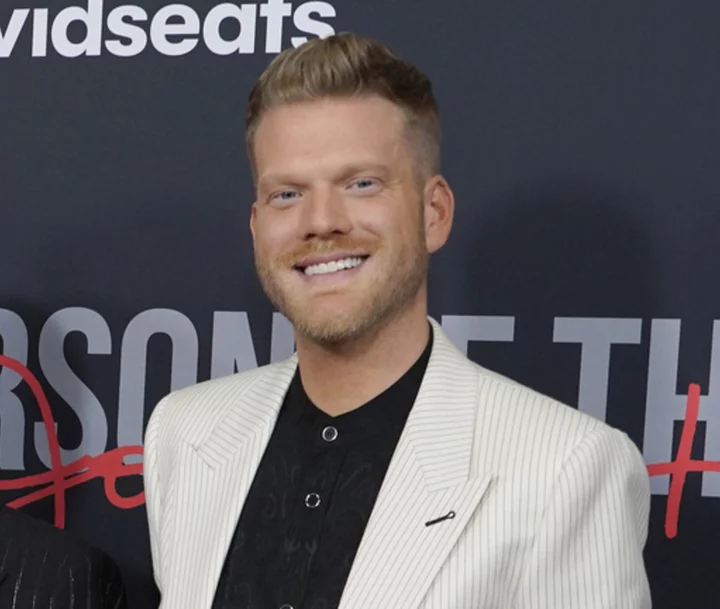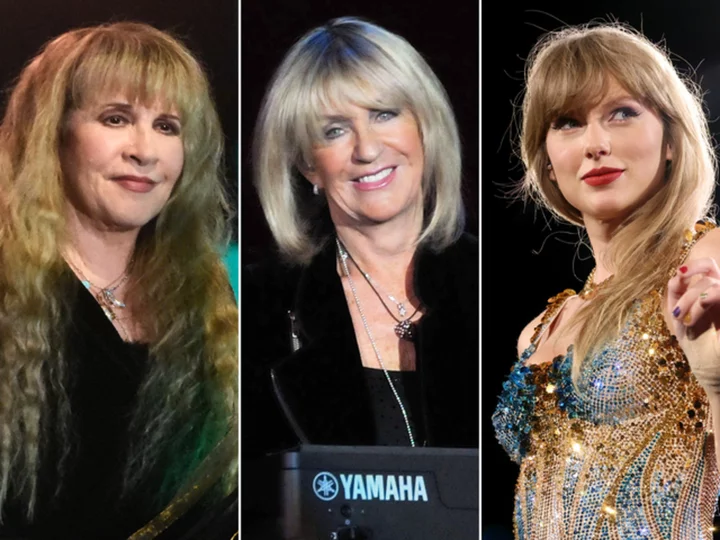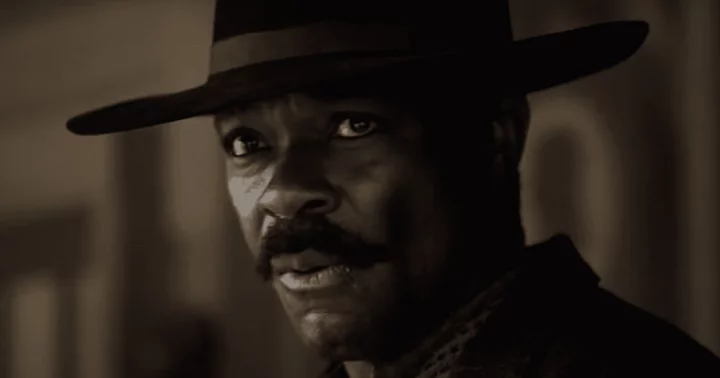NEW YORK (AP) — A sign of how much "Little Broken Hearts” represented a departure for Norah Jones was that she filmed not one, but two music videos for the album depicting herself as a murderer.
One victim was a lying, cheating boyfriend, the other his temptress. Both ended up at the bottom of a lake.
A decade after its release, the disc stands as an island in Jones' career. It's a little gem where she tested herself to leave a musical comfort zone to process romantic turmoil — and ended up with a concise, consistent statement that rivals some classic heartbreak albums.
“I just love it,” Jones said recently. “It's one of my favorite things I've ever done. I also think that for people who weren't really on board with me or my music, some of them liked it when they didn't like the rest of my stuff, and I always thought that was kind of fun and funny.”
This is Norah Jones, remember. Her sumptuous voice was everywhere in the early 2000s, songs from her jazz-inflected debut “Come Away With Me” pouring out of speakers in living rooms, boutiques and restaurants. It has sold a staggering 23.7 million copies.
It was music so pleasing and inoffensive, it offended some.
The Jones who approached 2012's “Little Broken Hearts” was in her early 30s and just off “one of my more dramatic break-ups.” Her voice seemed weary in the song “Good Morning,” which sounded like dawn breaking on a sleepless night.
On the musical “Dear John” letter, a resigned Jones sings of “folding my hand.” You learn why in the ensuing 11 songs, as the rough outlines of a betrayal story emerge.
She worked with Brian Burton, the producer known as Danger Mouse whose edgy imprint was evident on discs by Gnarls Barkley, Broken Bells, the Black Keys and Beck. She had asked him to produce music she had written for a previous album, but he declined. That was not how he does things.
He liked to go into the studio with nothing written and see what happens.
“And I was like, ‘what?’” Jones said. She had never worked that way.
That seems, to an outsider, a little disorganized, haphazard. They collaborated mostly alone in a studio for two months and the strengths of that approach became evident. The songs are simple, direct and tell a cohesive story both lyrically and musically.
At the beginning of the process, Burton asked whether Jones was willing to go someplace darker than she’d previously been. Under his direction, she told the stories in a hushed voice.
“He likes that kind of dark music, but I was just up for anything, you know?” she said. “I felt so comfortable with him because we were already friends, and we had already spent the last few years meeting up every once in a while, having a drink, talking about relationships and stuff.
“So it didn’t feel like going into this vulnerable place with a stranger,” she said. “That made it so much easier.”
The work culminated in the song “Miriam,” at once mesmerizing and kind of creepy, where she fantasizes about killing her rival. “Miriam, it’s such a pretty name,” she sings. “And I’ll keep saying it, until you die.”
When done, Burton told Rolling Stone magazine that the album was “obviously very different than anything Norah's ever done. I don't know what people will think. I hope they like it, and she doesn't lose a bunch of fans.”
What one critic, Mark Saleski, found even more stunning than the musical shift was “this mind-boggling idea: Somebody cheated on Norah Jones.”
“It happens to the best of us,” Jones said over lunch in an outdoor cafe. “It’s part of life.”
No, the real woman's name isn't Miriam. And, no, Jones is no murderer. Songs aren't always literal. She's resisted referring to this as a heartbreak album — even though “broken hearts” appears in two song titles — because Jones worries that characterization overshadows the music and misses some of the playfulness.
Her reticence is evident when Jones is asked about how the real people who inspired the stories felt about the album. She didn't like those questions then — or now.
“Why do you need me to talk about my relationships?" she said. "I've just given you a whole album encapsulating the emotions and the inner workings of my brain. People are so nosy and it's so funny. It's like, I'm bleeding into this album. What more can I say that would be better than that?”
There's a rich history of artists pouring romantic torment into songs or albums. The best avoid self-indulgence, and leave listeners room to recognize their own lives in what they're hearing.
Bob Dylan's “Blood on the Tracks,” Marvin Gaye's “Here, My Dear,” Fleetwood Mac's “Rumours,” the Cure's “Disintegration,” Kanye West's “808s & Heartbreak,” Amy Winehouse's “Back to Black,” Adele's “21” and Bruce Springsteen's “Tunnel of Love” are some that come to mind.
It's a little soon to tell whether Jones' “Little Broken Hearts” will join that pantheon, said Krystal Klingenberg, music curator at the National Museum of American History.
She admires the effort, though.
“Stepping out to try something different and taking a turn in your artistic direction always takes guts, and I honestly applaud her for that,” Klingenberg said. “If all things were equal, I'm sure the industry would like her to play ‘Don’t Know Why' forever.”
Who could blame anyone? “Don't Know Why” has streamed more than 416 million times on Spotify. The song “Come Away With Me” has streamed 339 million times. “Happy Pills,” the most popular song on “Little Broken Hearts,” has 34 million streams.
About six months after Jones finished the album, she had lunch with Bruce Lundvall, the jazz maven who ran her label, Blue Note Records. Lundvall, who died in 2015, confessed that he didn’t really love the record at first but was coming around.
“He was a smart music lover, but it was not really his thing,” Jones said. “That made total sense and was totally fine with me. I kind of felt that way about anyone who maybe loved my first record but didn’t love this. That didn’t really bother me. It’s a very different record.”
Despite the darkness of the material, Jones has nothing but happy memories of making it. She rented a house in Los Angeles near where it was recorded, and came back to swim at the pool when the day's work was done.
Friends visited, including a new boyfriend — now her husband and father of their two children.
Reviews were generally positive for the disc, which has recently gotten the reissue treatment that includes a live show from Texas where she performed the full record as a piece.
Even a hipster magazine like Spin liked it, although critic Nate Cavalieri couldn’t resist a shot: “‘Little Broken Hearts’ is exciting because it explores the darkest corners of betrayal, bad love and jealousy with enough vitality to propel Jones out of the bloodless purgatory of brunch music.”
She still likes performing the songs, their sturdiness confirmed to her when they hold up in stripped-down versions. She has mixed feelings about revisiting “Miriam,” even though the cut got one of the biggest reactions when released, because she doesn't want to inadvertently encourage violence.
Jones acknowledges the pressure she felt in dealing with the out-of-body public response to “Come Away With Me.” No sense in pretending otherwise.
In a way, the experience of “Little Broken Hearts” confirmed her approach in moving on.
"If I don't just do what I want, I'm going to fail at succeeding anyway,” she said.

